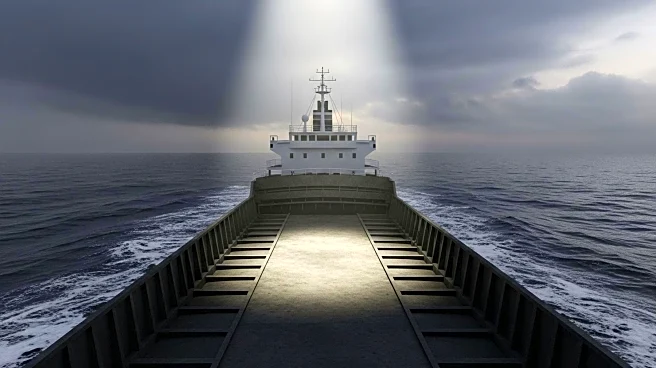What is the story about?
What's Happening?
Israeli authorities have intercepted a flotilla bound for Gaza, which was purportedly carrying humanitarian aid. However, upon inspection, no aid supplies were found on board. The Israeli Police spokesperson, Dean Elsdunne, stated that the flotilla's mission was more about generating headlines and social media attention rather than delivering actual aid. The flotilla was docked in the port of Larnaca, Cyprus, following its interception. The incident highlights ongoing tensions surrounding aid delivery to Gaza and the challenges faced by international efforts to provide humanitarian assistance to the region.
Why It's Important?
The interception of the flotilla underscores the complexities of delivering humanitarian aid to Gaza amidst the ongoing conflict. The absence of aid supplies raises questions about the intentions behind such missions and the effectiveness of international efforts to support Gazans. This incident may impact public perception and trust in humanitarian initiatives, potentially affecting future aid operations. The situation also highlights the broader geopolitical tensions between Israel and groups attempting to deliver aid to Gaza, which can influence diplomatic relations and international policy decisions regarding the region.
What's Next?
Following the interception, Israeli authorities may conduct further investigations into the flotilla's organizers and their motives. The incident could prompt discussions among international organizations and governments about improving the transparency and effectiveness of humanitarian aid delivery to conflict zones like Gaza. Stakeholders may explore alternative methods to ensure aid reaches those in need, potentially involving increased collaboration with established international agencies. The situation may also lead to diplomatic engagements aimed at addressing the underlying issues that hinder aid delivery and contribute to regional instability.
Beyond the Headlines
The flotilla incident highlights ethical considerations regarding the use of humanitarian missions for political or media purposes. It raises questions about the accountability of organizations involved in such initiatives and the potential exploitation of humanitarian narratives for non-humanitarian objectives. The situation also reflects broader challenges in navigating the intersection of humanitarian aid, media influence, and geopolitical interests, which can complicate efforts to address the needs of affected populations in conflict zones.















